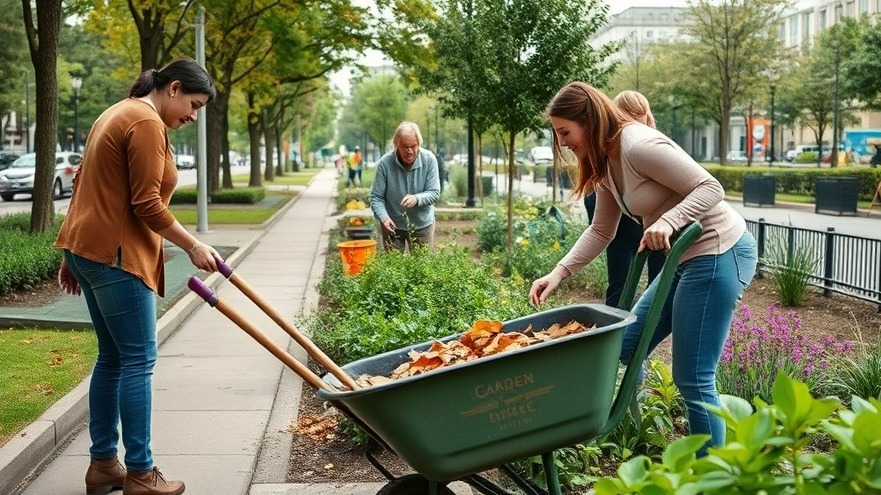
The Vital Role of Urban Green Spaces in Healthcare
As we celebrate Clean Air Day 2025, it's imperative to highlight the crucial connection between urban green spaces and community health. Not only do these areas improve air quality by acting as natural filters for pollutants, but they also significantly enhance the physical and mental well-being of local populations. The World Health Organization underscores the importance of access to greenery, indicating that urban environments enriched with plants and trees lead to lower exposure to air toxins and provide crucial avenues for physical activity.
How Green Spaces Foster Healthier Communities
While few can debate the aesthetic appeal of parks and gardens, their benefits extend far beyond visual satisfaction. Research has shown that urban greenery can reduce air temperatures, helping mitigate urban heat island effects—a significant concern for densely populated cities. An estimated temperature drop of up to 2°C can lead to decreased heat stress among residents. Moreover, access to green spaces can lead to substantial health savings; in the UK, the NHS saves an impressive £100 million annually due to reduced healthcare needs linked to improved community health outcomes.
The Cost of Environmental Neglect
Despite these positive influences, a staggering 10 million residents in England live in areas with limited access to green spaces. This highlights a pressing issue for concierge medical practices aiming to improve community health outcomes. By advocating for and supporting urban greening projects, medical practices can play a vital role in remedying public health disparities caused by environmental neglect.
Local Actions Supporting Global Goals
HPP’s recent volunteer initiative at the Phoenix Garden illustrates the kind of local efforts that can have a significant impact on public health. By dedicating time and resources to enhance urban green spaces, healthcare providers not only contribute to environmental sustainability but also foster community engagement and connectivity. Such volunteer initiatives can serve as a model for concierge medical practices looking to solidify their standing in local communities while promoting health and wellness.
Future Challenges and Opportunities
Looking ahead, the importance of clean air and accessible green spaces will become even more critical in light of rapid urbanization and climate change. Healthcare professionals must stay informed on the evolving regulatory environment surrounding environmental initiatives, particularly the legal implications of urban greening projects. Being proactive in these discussions can position medical practices as leaders in the fight for healthier neighborhoods.
Implementing Actionable Strategies for Improvement
For concierge medical practice owners, this Clean Air Day serves as a call to action. Consider integrating environmental health initiatives within your practice. Partner with local organizations to promote and participate in urban greening projects, and advocate for policies that enhance community access to green spaces. Such steps not only contribute positively to public health but also elevate your practice’s profile within the community as a proactive, health-oriented establishment.
As this year’s Clean Air Day gathers momentum across various sectors, it's essential for medical practices to lead by example, turning attention to air quality and environmental health as fundamental aspects of patient care. Interested consult your local environmental groups, and begin to draft an action plan tailored to your patient population and specific community needs.
 Add Row
Add Row  Add
Add 






Write A Comment